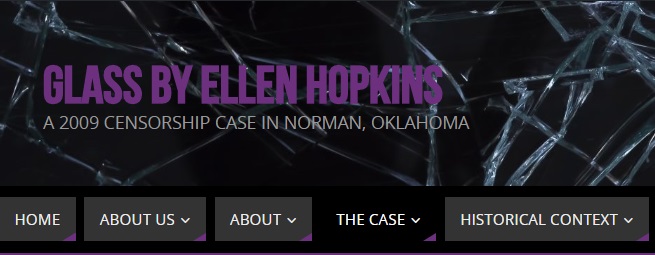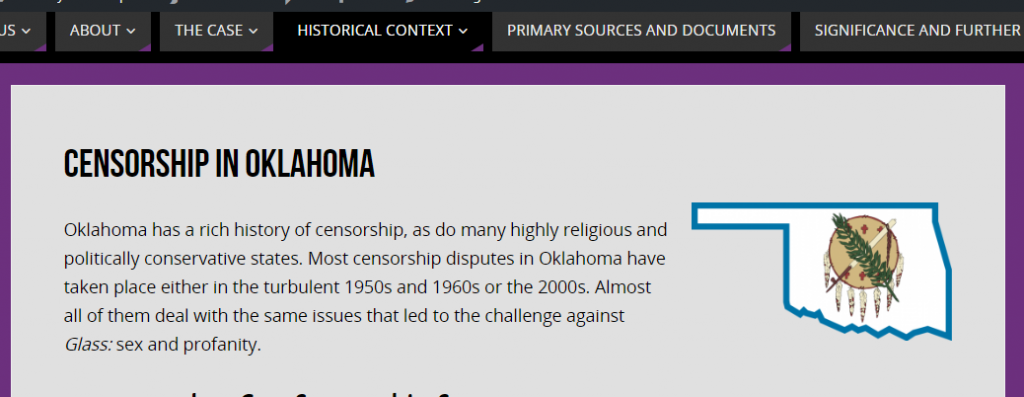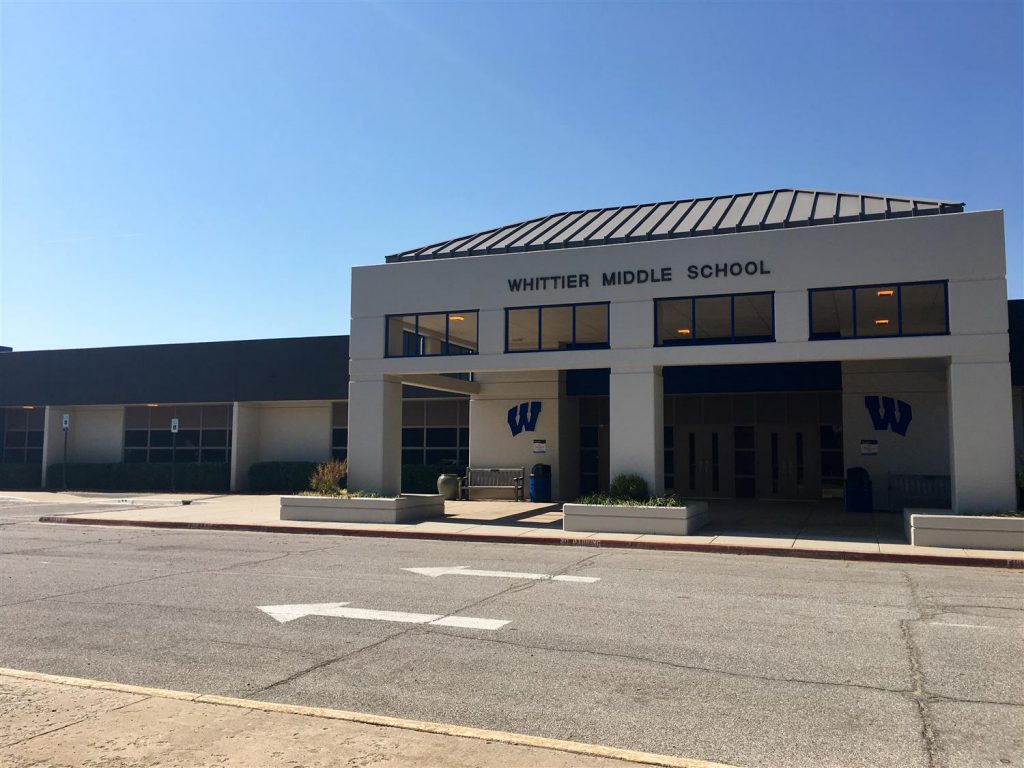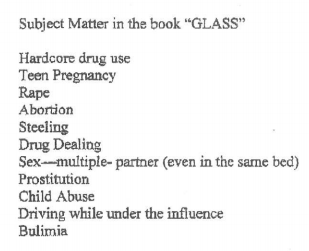After lots of coffee and approximately a thousand years of arguing with WordPress, the first draft of our page is complete!
The Good News
I definitely feel much more proficient in using WordPress than I ever thought I’d be, and I’m impressed with what we’ve gotten our website to do. Baylee very skillfully placed some hyperlinked buttons around our site which look sleek and help with navigability. I, on the other hand, have been enjoying using the PDF embedder feature for the case documents.
The last few days have been mostly taken up by the “Significance” section of our site, where I tried to outline some of the case’s major themes in the larger context of censorship. I wanted to outline how our case works with the general argument between controversy and literary value/merit, as this seems to be at the core of most, if not all, major censorship cases. I also devoted some time to talk about the faulty handling of this case by Norman Public Schools, and how that reflects a general ineptitude on the part of school district administrations in handling cases like the one at Whittier in a way that does not allow the complaints of one to dictate the experience of all. I’m quite proud of this section–and it doesn’t even look that much like an essay! Yay!
The Bad News

Baylee and I were never able to find a way to embed our Venngage infographics onto the site. Although she was able to make some great graphs for her demographics page otherwise, I’m very bitter that I couldn’t use by beautiful, clickable navigation graphic. By the time we figured out it wouldn’t work, it didn’t seem worth it, time-wise, to make another one on a different site. I might still do this before the final draft of the site is due, but for now, Baylee’s buttons look just fine.
Also, I never heard back about permissions to use our clippings from The Daily Oklahoman. I’m going to keep them on the site for now and try emailing them yet again this week.
We also never got an interview with our professor, Dr. Rees, as her schedule got too hectic last week. We could still do this, but I think our site functions perfectly well without it. She also doesn’t know a lot about the author, book, or case, so I’m second-guessing how much this would contribute. I’ve been feeling somewhat anxious about the amount of material we have compared to other cases, but it should be good enough. The site is concise and navigable, and I think it accomplishes what it sets out to.
Onward!
Having this first draft done is a huge weight off my chest, especially considering the workload I have for other courses this week. I look forward to seeing what everyone else in class has to say about it, and I can’t wait to look at the other projects in more detail.






